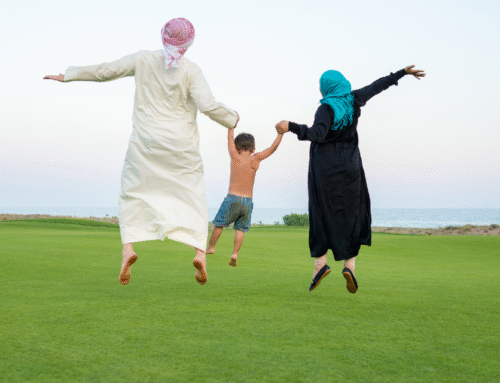In the Arab world, we are avid consumers of other cultures and their products. Stroll through any major city, and you’ll see the landscape adorned with symbols of global influence: French fashion boutiques, Italian leather shops, German luxury cars, Japanese electronics stores, Swiss chocolate counters, Brazilian coffeehouses, and yes, even American arms suppliers. The list is endless, a testament to our openness and appetite for the world beyond our borders.
Yet, it’s no surprise to walk into a public space where not a single Arabic word graces the walls. It’s not shocking to hear of someone being denied entry for wearing traditional attire, an unsettling nod to patterns of subtle self-loathing that have taken root. These experiences tell a larger story, a culture that has long absorbed the products and narratives of others while struggling to project its own voice.
Despite having over 420 million native Arabic speakers worldwide, only 3% of all online content is produced in Arabic. This staggering disparity underscores a deeper issue: while we consume the world, the world has limited access to our stories. Our voices are absent from the global stage, muted by a lack of investment in content that speaks to international audiences. We are failing in this regard, and the consequences are significant.
The Current State of Arabic Content
While UAE, Egypt, and Saudi Arabia are the region’s biggest players in the media and entertainment sector, collectively accounting for more than 50% of the total market in MENA, their influence rarely extends beyond the region. Our films don’t have world premieres that capture international headlines, and they are seldom subtitled or dubbed for viewers outside the Arab world. Our literature, rich with history and layered with meaning, remains confined to Arabic-speaking readers, scarcely translated to reach global audiences. This absence leaves a void—a silence filled by stereotypes and narratives written by others.
Why This Matters
This gap is not just a missed opportunity for cultural diplomacy or economic growth; it represents a loss of identity on the world stage. When our stories remain untold, the world learns about us through a skewed lens. The images portrayed are often incomplete or damaging, disconnected from the truth of our lived experiences. This lack of representation perpetuates misunderstandings and allows misconceptions to flourish unchecked.
Arabic is the fifth most spoken language in the world, yet it is underrepresented in the digital and media landscape. While there is an abundance of talent and a deep reservoir of cultural heritage, we have yet to see a proportional investment in translating and promoting Arabic content internationally.
The Path Forward: Creating and Sharing Our Stories
To change this, we must commit to creating content that resonates beyond our borders. This means producing films with subtitles and dubs for international audiences, translating literature into major world languages, and investing in digital content that speaks to a global demographic. Governments, media companies, and content creators in the region should prioritize initiatives that promote Arabic voices on international platforms.
Moreover, leveraging modern technology and digital tools can amplify our stories and reach audiences far beyond our borders. Collaborative efforts between the biggest players in the region—UAE, Egypt, and Saudi Arabia—could spearhead a movement that champions Arabic content on the world stage. Supporting projects that bridge traditional storytelling with contemporary formats will ensure that our culture is not just preserved but celebrated worldwide.
The World Needs Our Stories
The need to amplify Arabic content extends beyond the pride of representation; it’s about securing a seat at the global table where narratives shape public perception and cultural understanding. The 420 million Arabic speakers deserve more than a token presence online—they deserve to have their voices heard, their stories told, and their culture celebrated globally. We owe it to ourselves and future generations to ensure that the world doesn’t just learn about us from outside perspectives but hears directly from our poets, filmmakers, writers, and thinkers.
It’s time for the Arab world to step forward and create content that not only reflects who we are but connects with the global community. The stories that define us, rooted in resilience, love, art, and history must cross borders and resonate with audiences everywhere.
Let’s tell the world who we are, not through the lens of others, but through our own words, images, and voices.


